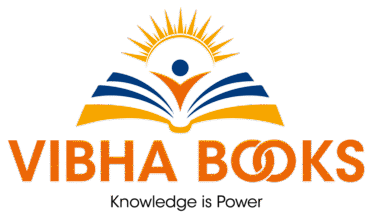UKG Books: Preparing Children for Primary School
UKG (Upper Kindergarten) is a crucial stage in early childhood education, typically for children aged 4 to 5 years. This stage builds upon the foundation laid in Nursery and LKG, focusing on readiness for formal schooling. UKG books are designed to enhance literacy, numeracy, and social-emotional skills while encouraging independent learning, creativity, and critical thinking.
Purpose and Importance of UKG Books
UKG books aim to strengthen the concepts introduced in earlier years and prepare children for Grade 1. The focus shifts from simple recognition of letters, numbers, and basic concepts to reading, writing, and problem-solving skills. UKG books also emphasize reasoning, logical thinking, and understanding of the world around them.
At this stage, children are more curious and capable of following instructions, completing tasks, and engaging in collaborative learning. UKG books provide structured exercises and activities that challenge young minds while keeping learning enjoyable. Stories, rhymes, and illustrations continue to play a vital role, fostering imagination and moral development.
Core Components of UKG Books
- Language and Literacy: UKG books enhance reading and writing skills by introducing small sentences, word formation, and simple comprehension exercises. Phonics, rhymes, and storytelling are used to expand vocabulary, improve pronunciation, and develop listening and speaking skills. Tracing letters, writing words, and reading short stories help children gain confidence in literacy.
- Mathematics: UKG books cover advanced numeracy concepts such as number sequences, addition, subtraction, basic multiplication, shapes, patterns, measurement, and problem-solving activities. Children engage with exercises that develop logical thinking and application of mathematical concepts in daily life.
- Environmental Studies (EVS): UKG books expand children’s understanding of their environment, including animals, plants, transport, seasons, festivals, community helpers, and basic science concepts. Lessons are designed to make learning relatable and encourage curiosity about the natural and social world.
- Art and Creativity: Coloring, drawing, painting, and craft activities continue to play a significant role. These exercises enhance imagination, fine motor skills, and self-expression. UKG books often encourage children to create their own stories, drawings, or projects, fostering creativity and confidence.
- Moral and Social Values: Stories in UKG books emphasize values such as honesty, kindness, sharing, cooperation, and respect. These lessons guide children in understanding emotions, interacting positively with peers, and developing empathy.
- Interactive and Cognitive Activities: Puzzles, matching exercises, connect-the-dots, sequencing activities, and games in UKG books improve concentration, memory, reasoning, and problem-solving skills. These hands-on activities make learning engaging and practical.
Design and Features of UKG Books
UKG books are designed with colorful illustrations, large fonts, and structured layouts that are appealing and easy to follow. Each page balances visual learning with exercises to ensure active participation. Modern UKG books often include interactive elements such as stickers, cut-outs, and QR codes linking to audio stories or educational videos.
The content gradually progresses from simple concepts to more complex exercises, ensuring that children develop confidence and mastery in each area. UKG books cater to multiple learning styles—visual, auditory, and kinesthetic—so every child can learn effectively.
Role of Teachers and Parents
Teachers use UKG books to guide classroom learning, introduce new concepts, and assess readiness for primary school. Exercises and activities in the books provide structure and allow teachers to monitor individual progress.
Parents support learning at home by reading stories, practicing writing and numbers, and engaging children in creative projects. UKG books often include guidance for parents to reinforce lessons, making learning a collaborative process.
Benefits of UKG Books
- Academic Readiness: Prepares children for Grade 1 with strong literacy, numeracy, and comprehension skills.
- Cognitive Development: Enhances memory, attention, reasoning, and problem-solving abilities.
- Creativity and Expression: Encourages art, craft, storytelling, and imaginative play.
- Social and Emotional Skills: Teaches cooperation, empathy, communication, and self-regulation.
- Confidence and Independence: Builds self-esteem through mastery of concepts and tasks.
Modern Trends in UKG Books
Contemporary UKG books emphasize inclusivity, diversity, and awareness of environmental and social issues. Children are introduced to stories that showcase different cultures, abilities, and lifestyles, promoting understanding and acceptance. Themes like health, safety, recycling, and conservation are also incorporated.
Digital integration is becoming increasingly common. Interactive exercises, animated stories, songs, and educational games enhance engagement and reinforce learning. These resources help children develop multi-sensory learning experiences, making education dynamic and enjoyable.
Conclusion
UKG books are vital in preparing children for primary school, building on the foundations of Nursery and LKG. They combine academic learning with creativity, moral education, and social skills, ensuring holistic development. Well-designed UKG books foster literacy, numeracy, reasoning, and confidence while making learning interactive and enjoyable.
By using UKG books with guidance from teachers and parents, children are equipped with the skills, knowledge, and curiosity they need to succeed in Grade 1 and beyond. These books play an essential role in nurturing independent, confident, and imaginative learners ready to embrace the next stage of their educational journey.
